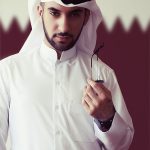Gay Pride in Minsk, Belarus (Slavic Pride 2010)
Despite exhuberant celebrations and huge parades in the West, Gay Pride events elsewhere, such as Belarus, remain difficult and dangereous. Gay Pride is very much still a global fight for human rights, both in the streets and in a new documentary film.
By Richard Ammon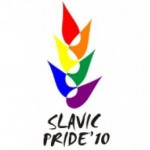 and UK Gay News
and UK Gay News
GlobalGayz.com
May 15, 2010
Also see:
Gay Belarus News & Reports 2004 to present
This is a story about Baltic Gay Pride in the Country of Belarus, a former Soviet that has not at all outgrown the dense homophobia that the Soviets fostered. It’s also a story about Gay Pride around the world as seen through the eyes of a documentary film called Beyond Gay: The Politics of Pride.
Friday
As I write this, Slavic Pride events–as Gay Pride is called in the Belarus capital of Minsk–have already started to happen, whatever that means. It could be a simple in-house party of LGBT people or it could be a battle ground between ultra-right nationalist skinheads and riot police. The Pride event has been banned by the city authorities from any public action for absurd security reasons, such as the venue being too close to a Metro entrance! But the organizers are planning a march anyway tomorrrow on Saturday.
Since I am in Massachusetts, my source for these events is a blogging reporter from UK Gay News.
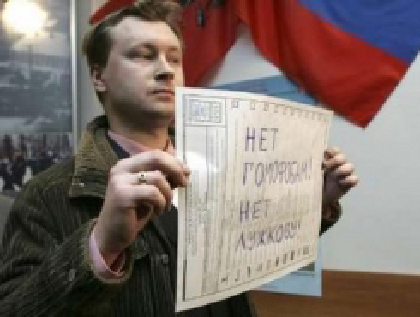 Nikolai Alekseev (photo left) and others from the Moscow and St. Petersburg activist group GayRussia.ru arrived in Minsk to help the Belarusian organisers. The LGBT community in Minsk is very small and not much experienced in political warfare. Outside help and advice are coming from Germany and Holland. (See Alekseev’s commentary.) The omens are not cheerful: the European Union Embassy, which is usually very progressive for LGBT rights, even said “we believe this is too much for Belarus”.
Nikolai Alekseev (photo left) and others from the Moscow and St. Petersburg activist group GayRussia.ru arrived in Minsk to help the Belarusian organisers. The LGBT community in Minsk is very small and not much experienced in political warfare. Outside help and advice are coming from Germany and Holland. (See Alekseev’s commentary.) The omens are not cheerful: the European Union Embassy, which is usually very progressive for LGBT rights, even said “we believe this is too much for Belarus”.
In the evening the first event was a scheduled showing of the Canadian film, Beyond Gay: The Politics of Pride , described and reviewed in detail below. By now, a few protesters had discovered the meeting was happening at the Minsk Crown Plaza Hotel and began to gather outside, a small group of a dozen or so at first but they blocked the entrance so attendees could not get in.
By 10 PM there were a few dozen protesters and it was uncertain the film could be shown since most paricpants couldn’t get in. The police were called to remove the protesters. The entry was cleared and participants showed up (about 100 out of 150 registered). The film started but was interrupted shortly by a bomb scare. Viewers moved to another room and finished watching the film.
“The audience was very moved by the movie, watching the difficulties to stage Prides in Moscow or Warsaw and the contrast with Sao Paulo, New York or Vancouver … and there was a lot of emotion on faces of the guests. There was a standing ovation for Bob Christie, the film director. Nikolai Alekseev said, “we held this event here in Minsk tonight and the protestors did not stop us despite trying. Congratulations to all. This is already the first step.” Guests then headed for a cocktail reception.
Saturday
Saturday arrived and there were no unusual surprises: 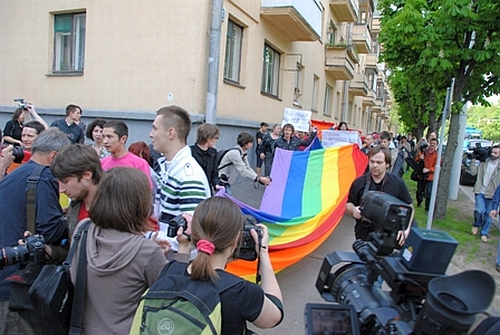 trouble was anticipated and trouble there was. The gay participants knew the police would try to stop them. The police knew where the marchers were and intercepted them–but not before the combined rights activists from Moscow and St Petersburg joined the Belarus activists to unfurl a big rainbow flag (photo right), about 12 meters long (35 feet), and carry it along one of the main streets for a short distance.
trouble was anticipated and trouble there was. The gay participants knew the police would try to stop them. The police knew where the marchers were and intercepted them–but not before the combined rights activists from Moscow and St Petersburg joined the Belarus activists to unfurl a big rainbow flag (photo right), about 12 meters long (35 feet), and carry it along one of the main streets for a short distance.
A few other participants unfurled their own smaller flags so the dozens of reporters and photographers from local and international press could take photos and have short interviews. Read more details from Logan Mucha’s report.
Events happened quickly once the police came into contact with the rights celebrants. The black uniformed troops jumped out of their trucks and quickly grabbed the big flag away from the marchers and spirited it away as other black shirts began arresting people (marchers and protesters) and shoving them into the trucks. Reports vary about the actual number of people arrested but it was generally known there were fewer than 15 marcher arrests. One report said there about the same number of skinheads arrested. See this filmed report from Naviny.by.
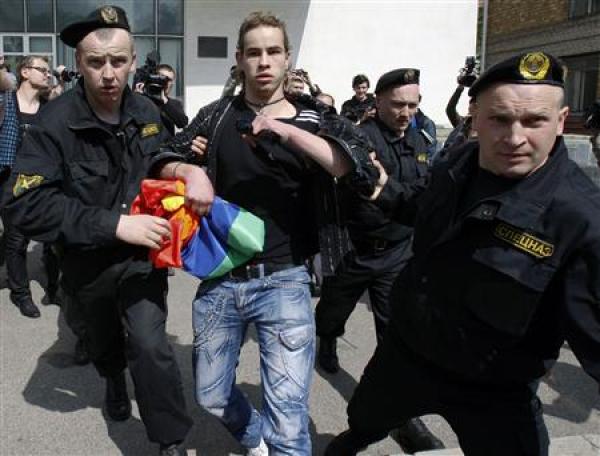 Diplomats were called and the usual shuffle of affairs to get the arrested activists released. Maria Efremenkova, St Petersburg Pride chief organiser, was told by the Russian Embassy that the Belarusian authorities have denied Embassy officials consular access to the two Russians being detained.
Diplomats were called and the usual shuffle of affairs to get the arrested activists released. Maria Efremenkova, St Petersburg Pride chief organiser, was told by the Russian Embassy that the Belarusian authorities have denied Embassy officials consular access to the two Russians being detained.
Symbolic of the corrupt and inefficient governance in Belarus is that eight of those arrested and detained were told by the police that they (the police) did not have petrol in their vans and could not take them to the assigned detention center where they were supposed to remain until the court hearing! Instead they were told that they would be released with a stern warning to show up in court on Monday. (This changed later when gasoline was mysteriously found and the captives were moved to a detention center until Monday.)
Later in the night of Saturday there was a party planned at Minsk’s only gay venue, Club 6-A. Police surrounded the place to allow the party and to protect the people inside from the protesters on the outside. The 2010 the Slavic Pride Awards were handed out in the ‘wee small hours’. The Belarus Award went to Alexander Sakovich, the directeur of Club 6-A, the only only gay club in Minsk, while the founder and president of International Day against Homophobia and Transphobia, Louis-Georges Tin, picked-up the International Award.
There were eight still locked-up by the police awating court appearances but now there are only seven. One managed to escape by asking to go to the toilet and then calmly walking out of a door to freedom! Said escapee actually made the Pride party. Food and drinks for the seven detained have been taken to the police station by Sergey Androsenko. In Belarus, anyone detained by the police have to be fed by their relatives.
Eventually everyone went home to sleep and wake up to a quiet Sunday morning Minsk, as if nothing had happened. Except it had. A strong statement had been made.
No one was seriously injured although folks were bashed around and handled roughly. (More details can be read at the Reuters website.) “It was very short but very effective. People were very heroic too take part today” said Nikolai Baev, one of the organizers from Moscow Pride who arrived from Moscow to take part to the event.
The important issue of this broken event was less to do with waving flags, giving speeches, claiming human rights for LGBT people and wrestling wih police. It had much more to do with raising international awareness of human rights abuses, discrimination and homophobia in Belarus; embarrassing the government into paying attention to these issues and to homosexual Belarussian citizens.
The current government is generally repressive headed by a former Soviet apparatchik who governs the country in the dictatorial Soviet manner. There has been no gesure of official tolerance toward LGBT rights and Belarussian President Alexander Lukashenko has been under pressure from Western rights groups to enact political reforms and encourage broader civil rights in his country. Currently, there is little chance for gay rights to make headway other than to make trouble and use the press to raise LGBT voices loud enough to be even slightly heard in the government.
Part of that effort to embarrass and shame the authorities was the screening of the documentary called Beyond Gay: The Politics of Pride (see the summary trailer here and reviews below) which displays the stark difference between repressive countries toward gays and the liberated countries as seen through gay Pride parades, from Vancouver to Sri Lanka to Moscow, among others.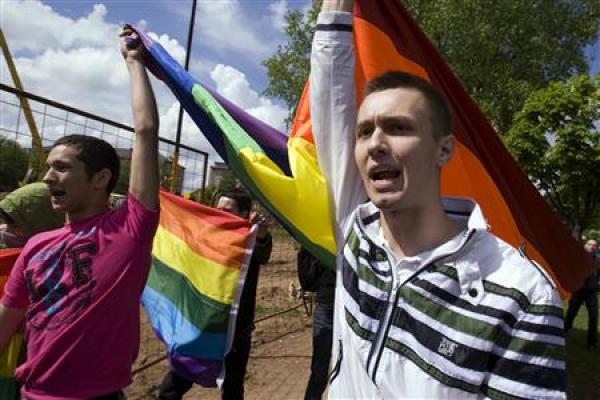
Belarus has shamed itself. Although it can pretend to ignore a handful of queer crackpots waving flags, the symbolic meaning of Saturday will ripple across the borders to political and rights leaders who care about equality and human rights. The day will stand in Pride history and as a stain upon a morally corrupt government that will someday fall as human rights continues its slow and victorious march across homophobic and repressive Eastern Europe.
Monday May 17
The seven Belarusian and Russian gay activists, who spent the weekend in police custody have been released. A local court ordered each to pay a fine of 17,500 Belarus rouble fine (about $US 6.00 or £4.00). Among those arrested by the police were two of the St. Petersburg Gay Pride organisers, Alexander Sheremetyev and Dmintry Milkovo who joined 20 other Russian who travelled to Minsk to support Slavic Pride.
May 17 is also the International Day Against Homophobia
Final Pronouncement
A final pronouncement from the Baltic Prde team was issued:
“The organisers of Salvic Pride have sent a message thanking those who followed the blog over the past 48 hours on this site or on other English language Web sites. They also extended thanks to the French, German, and Spanish sites which translated and republished this blog. The Second Slavic Pride was in most ways a sucess this year, even if the public action was banned and if the participants have met police violence and faced arrests.
“We have been able to march symbolically in Minsk on Saturday with the rainbow flag despite the multiple threats we received over the last few days, despite the police attempts to prevent our action and despite the pressure received by some of our activists from the KGB. We did not give up. We marched against homophobia. On the evening of the International Day Against Homophobia and Transphobia, we will now fight for the release of the seven participants still detained.
“Congratulations to all the Belarusian & Russian activists who made history in Minsk.
‘Gay Equality, No Compromise’.”
The Slavic Pride Organising Committee.
———————–
The Film: Beyond Gay: The Politics of Pride
A film by Bob Christie (Canada, 2009)
From the Director 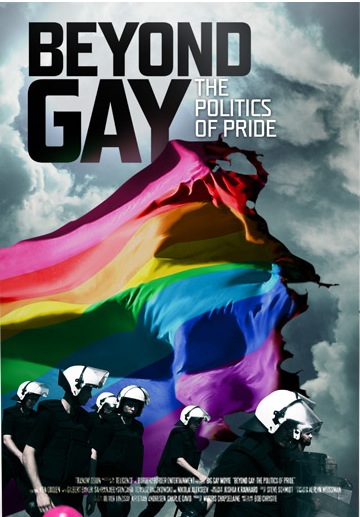
“Gay people are famous for being fabulous and having lots of fun, and really that was my goal for the audience experience of Beyond Gay. So the film is definitely equal parts entertainment and education. Many people, gay and straight have become cynical about Gay Pride parades, and I hope I can put some of those criticisms to rest and get people to appreciate and celebrate the inclusiveness and diversity of Canada. I hope it’s inspirational for other countriess to see what is possible. We got into some pretty dicey situations in Russia that definitely made me appreciate my home and native land more than ever…. The whole experience of making this film has been overwhelmingly rewarding so it is difficult to choose the ‘best’ moment. I think marching in Warsaw’s Equality Parade was the most empowering and exciting of all the events we went to. Sao Paulo was overwhelming in its size, but Warsaw felt very special. In Moscow we were too frightened to appreciate what was happening.” Director Bob Christie
Description
http://www.mfa.org/calendar/event.asp?eventkey=42991&date=5/6/2010
A comprehensive look at gay pride marches and festivals around the world, this documentary follows the Vancouver Pride Society’s (VPS) parade director, Ken Coolen, and his colleagues as they witness different perspectives—including severe opposition and horrific violence. During their travels, they also visit Sao Paulo, Brazil, to participate in the world’s largest gay pride parade, and to New York City, the birthplace of the modern gay liberation movement. The film also includes Pride events or attempts in Sri Lanka, Moscow, Warsaw, Moldova. Coolen and the many organizers strive to spread the message that Pride remains a global fight for human rights. Discussion with the director follows screening.
Trailer of the Film
http://www.lgbt-news.com/2009/10/beyond-gay-politics-of-pride-world.html
Review 1
By Rob Salerno, Toronto
May 06, 2010
http://www.xtra.ca/public/Toronto/Inside_Out_2010_Beyond_Gay_The_Politics_of_Pride-8617.aspx
Over the course of a year, Christie follows Vancouver Pride Society president Ken Coolen to various international Pride events. At Warsaw Pride, a crowd of youths heckles marchers with “Great Poland, Catholic Poland.” In Budapest, marchers are separated from protesters by fencing that ultimately fails to prevent violence.
Perhaps the most moving sequence features a small but dedicated group of activists in Moscow, where Pride is banned. Christie shows how organizers lure police, press and anti-gay protestors to a decoy event at city hall while an actual 10-minute long, half-block, guerrilla Pride march unfolds without violence or arrest some distance away at the Tchaikovsky Conservatory.
“This was much more symbolic than getting beaten in the streets in front of city hall,” says Moscow Pride organizer Nickolai Alexeev in the film. Alexeev declares victory when, after a gay man on the city hall decoy detail is violently assaulted on camera, police arrest the assailants and let the victim go free. The bruised and bandaged man appears later, all smiles, at a secret Pride afterparty.
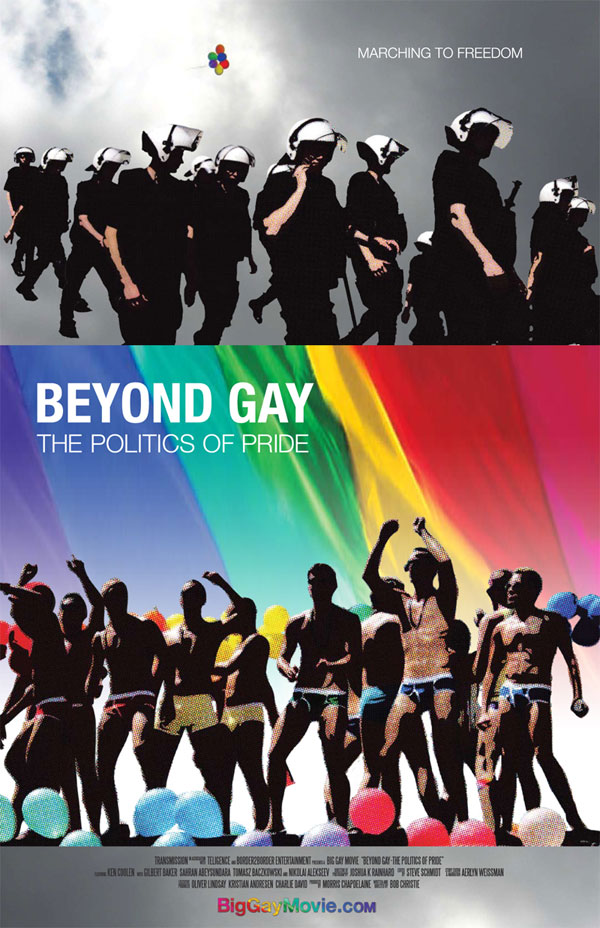
In North America, Pride is complicated by an ever-encroaching commercialization and a sense that the festivals are turning away from their political roots toward tourism, party promotion and entertainment. Christie documents the ways larger, more mainstream Pride events have supported the global Pride movement. He shows how large celebrations employ controversial messaging even while collecting corporate and government sponsorship money.
In one lengthy sequence, former Pride Toronto executive director Fatima Amarshi describes the human rights components she added to the Toronto festivities during her tenure. “We’re all very good at festivals,” Amarshi says. “We have a spot on the world stage. We can answer the call from Stonewall for an international civil rights movement.”
In the New York sequence, we meet the leaders of an alternative Pride parade, the Drag March, set up to protest the corporatization of New York Pride. “Sometimes you have to take the parade back from the leaders in the community,” one marcher says.
“Those smaller Prides would in many cases love some corporate sponsorship,” Christie tells me over the phone from Mykonos. “In many ways, it’s a measure of how far we’ve come. I don’t blame Pride organizations for seeking sponsorship because their financial support helps provide the messaging that’s so important…. I was speaking to organizers from Croatia, and they said, ‘Just keep doing what you’re doing. We see that as inspiration, as hope.’”
That balance is perhaps best illustrated in the film by a sequence from Sao Paolo, the world’s largest Pride festival, where charged political messaging and corporate logos seem naturally to coexist. The festival’s slogan is “Homophobia Kills” and features an image of a beaten, fairy-winged man. The parade itself includes a completely empty float, meant to symbolize all those lost to HIV and violence. The crowd is huge, and authorities use tear gas to disperse it when it’s time to reopen the streets.
Review 2
By Randy Shore, Vancouver
July 31, 2009
http://www.vancouversun.com/life/Pride+whole+world+watching/1850348/story.html#ixzz0nwyZjP16
Vancouver’s Pride movement is finding new relevance in missionary work and finding that there is indeed much work to do.
Bob Christie’s nearly finished documentary Beyond Gay: The Politics of Pride follows Vancouver Pride organizer Ken Coolen to the four corners of the earth and unearths new goals for the movement, including international outreach.
From our vantage point in a city that turns out in the hundreds of thousands for the annual Pride Parade, the level of political, institutional and violent grassroots resistance the LGBT (lesbian, gay, bisexual and transgendered) community endures in Asia and Eastern Europe seems almost unfathomable.
Vancouver Police officers and Mounties march in uniform in the Pride Parade, while their counterparts in Warsaw and Moscow hold back crowds of violent nationalist and religious anti-Pride protesters. Well, they nearly hold the protesters back. A few get through to lay a beating on some marchers and even the documentary camera crew.
“I got punched in the head in Moscow and so did our other producer when they jumped us from behind,” said Christie. “It was the first time in my life I have been gay-bashed and it was pretty scary for us.”
Gays face significant institutional resistance in Russia, too. Moscow’s mayor has refused 155 applications by organizer Nikolai Alekseev for a permit to hold a march over the past several years. This year Alekseev and 40 other organizers were arrested before they could even start the parade.
Since its earliest beginnings in the 1970s, the Vancouver Pride Parade has evolved from its political roots into a mainstream celebration and family-friendly festival, Christie said.
“I think in the ’90s the Pride movement kind of lost its way a little bit,” Christie said. “And we never saw the level of resistance here that they are fighting [abroad].”
“In the last three to five years, we are starting to look beyond our own borders,” he said.
What they find is deeply disturbing. Rather than the huge open celebration that cities such as Vancouver, San Francisco, Toronto and New York take for granted, Christie’s cameras scurry down dim stairwells to clandestine meetings with activists dodging incarceration. Large, menacing crowds of thugs pelt marchers with trash and firebomb gay bars in Eastern Europe, and in Sri Lanka there is no march at all because the penalty for homosexual acts is 10 years in prison.
Lesbians are subjected to beatings and gang rape to “cure” them of their sexual orientation, said Sri Lanka Equal Ground executive director Rosanna Flamer-Caldera. “They are deathly afraid to come out.”
It is a difficult environment in which to hold public Pride events. “At home we are not surrounded by people who want to kill us,” observed Coolen, who playfully dubs himself Big Gay Ken.
Though Beyond Gay is marketed as a Big Gay Movie with all the queer trappings that Pride parades in the West can conjure, it is quickly apparent that Pride at its core is not about sexuality but basic human rights — the right to live without fear of violence, imprisonment and murder.
Jamaican Pride activist Gareth Henry recounts the murder of a gay man in his home country that started as a police beating. When a crowd formed and demanded the police surrender the man to them to “finish him off,” they obliged and he was brutally murdered by the mob. He counts 13 friends murdered for their sexuality.
Pride marchers celebrate in Moscow when one of their activists is beaten by an anti-gay mob but released by police and his attackers detained, because “last year it was the other way around.”
As painful as it is, it is progress.
One can’t help but marvel at the irony of seeing the children and grandchildren of Russians and Poles who were murdered and oppressed by Adolf Hitler’s Nazis and Stalin’s brutal Soviet machine within living memory follow so closely in the footsteps of those monsters through the persecution of gays.
Marvellous, too, is the raw courage of the men and women who defy their governments and risk their lives for the simple right to walk down the street without hiding who they are.
Vancouver Pride has brought foreign organizers to participate in the last two Vancouver Pride Festivals. Sri Lankan Equal Ground organizer Sahran Abeysundara wept openly as the parade progressed past thousands of supporters.
For those who think that the Pride movement has passed its best-before date in Canada, Beyond Gay is a reminder that there is work to be done abroad and here at home too. Outside Canada’s major cities — and within — anti-gay sentiment still simmers just below the surface and occasionally boils over. Our cities are deceptive islands of tranquillity for the LGBT community.
“We sometimes joke that we live in a bubble in Vancouver,” Christie said. He argues Vancouver Pride has not lost its political function as a struggle for human rights.
“If you talk to the people that march, they will tell you that there is an ongoing political struggle,” he said. “Our parade is very much a celebration of what we have, but we are reincorporating that human rights element.”
Christie counts the Warsaw Pride parade as the “most empowering” of all the events he and his crew chronicled.
Warsaw Pride had to go to the European Union human rights tribunal to force the Polish authorities to allow the parade and offer police security. The police march in riot gear, forming a phalanx around the parade and containing a crowd of violent nationalist anti-Pride protesters who sing and chant like football hooligans. “It’s sad that they can be so misguided, thinking that they are standing up for their country when what they are doing is a lot more dark than that,” Christie said.
At the end of the parade the police protection they had enjoyed quickly evaporated and they ducked into a public bathroom to turn their Pride T-shirts inside out. “It just wouldn’t be a good idea to walk around with those on,” he said.
Read more: http://www.vancouversun.com/life/Pride+whole+world+watching/1850348/story.html#ixzz0nwyMq7Y8

